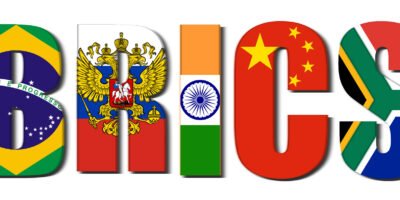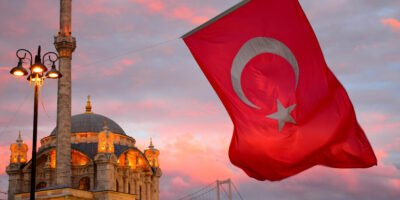How does Macedonia’s name change affect the Maedonians? You grew up calling your country the Republic of Macedonia. For as long as you can remember, that’s what you’ve proudly told people when asked where you’re from. But now, thanks to a political deal made to appease your neighbors, the country you’ve always known as Macedonia will be called the Republic of North Macedonia. And you hate it.
Why the anger over a name change? For Macedonians, this is about much more than just a name. Their national identity, history, and dignity are at stake. Politicians and diplomats may think they’ve come up with a clever compromise, but for regular Macedonians, this new name feels like a slap in the face by the global powers.

A Brief History of the Macedonia Naming Dispute
In 1991, when Yugoslavia broke up, the southern territory became the independent Republic of Macedonia. However, Greece objected to the new nation using the name “Macedonia” since Greece has a region of the same name.
For over 25 years, the two countries disputed the name. Ethnic Macedonians felt it was their right to use the name, as they have identified as Macedonian for centuries. Greece argued that the name implied territorial claims on their region. In 2019, Macedonia changed its name to the Republic of North Macedonia to resolve the conflict and join NATO and the EU.
Many ethnic Macedonians despise the new name. They see it as a concession that undermines their identity and sovereignty. Some think the government gave in to Greek pressure too easily. Politicians who backed the name change have faced criticism and protests.
Ethnic Macedonians are torn between the emotional connection to their name and the benefits of resolving the conflict. The controversy highlights the depth of feeling attached to names, especially in regions with complex histories and identities.

The Prespa Agreement: How Macedonia Got a New Name
The Prespa Agreement was signed in 2018 between Macedonia and Greece, ending a decades-long dispute over Macedonia’s name. As part of the deal, Macedonia agreed to change its name to North Macedonia, while Greece would drop its objections to Macedonia joining international organizations. For ethnic Macedonians, this was a bitter pill to swallow. It felt like a betrayal of their identity. They saw themselves as the descendants of the ancient kingdom of Macedonia, and the name was a source of pride. North Macedonia was a compromise that acknowledged Greek concerns but erased their perceived history.

Protests and backlash
There were massive protests against the Prespa Agreement. Critics saw it as a cowardly concession to Greek nationalism. The issue tapped into feelings of victimization and concerns that Macedonian identity and culture were under threat.
Supporters of the deal argued it was the only way for Macedonia to move forward and join Western institutions. The government held a failed referendum, but regardless of this the agreement was ratified, and bitterness over the imposed name change still lingers.
While North Macedonia has joined NATO, the Prespa Agreement remains controversial. Although promises were made by the Western powers, Macedonians have another dispute, this time with Bulgaria. Despite the promises that there would be no more obstacles on the way to the EU, Bulgarians decided that they wanted a piece of Macedonian identity as well. They vetoed the country on its path to joining the Union and a series of new controversies took over the political scene in the Balkans.
For ethnic Macedonians, the new name is a reminder of a compromise that left them feeling robbed of their identity and history. Moving on from that will take time.

Why “North Macedonia” Angers Ethnic Macedonians
The name “North Macedonia” was imposed on the country as a compromise to resolve a long-standing dispute with Greece over the use of the name “Macedonia”. However, ethnic Macedonians despise this new name for several reasons:
Identity
Ethnic Macedonians have identified as Macedonians for generations. To them, “North Macedonia” implies they are somehow not fully Macedonian, fracturing their sense of identity and nationhood. The name “North Macedonia” is seen as an attack on Macedonian heritage and history.
Pride
Macedonians are extremely proud of their cultural heritage, ethnicity, and country. The name “North Macedonia” is seen as belittling that pride by qualifying “Macedonia” with “North”. Macedonians feel it diminishes them and their nation.
Politics
The name change was seen as a concession to Greece to enable North Macedonia to join NATO and the EU. Many Macedonians opposed joining these organizations and saw the name change as a betrayal by politicians. There were protests, accusations of treason, and a sense that politicians had “sold out” Macedonia’s identity for political gain.
Fairness
They see it as unfair that they have to change their name to resolve what they view as Greece’s unreasonable objections. Macedonians feel they are being treated unfairly by the international community. Ironically, Greece only recently changed the name of their province to ‘Macedonia’, (Until 1987, the province was called simply ‘Northern Greece’.)
In the end, while “North Macedonia” may have resolved a political dispute, for ethnic Macedonians the new name cuts at the heart of their identity and nationhood. It will likely take generations for “North Macedonia” to be fully accepted by ethnic Macedonians, if ever at all. The wounds run deep, the sense of injustice lingers, and “Macedonia” remains who they are.

Identity Politics: How the Name Change Threatens Macedonian Nationalism
The name change from Republic of Macedonia to North Macedonia was meant to resolve the long-standing dispute with Greece. However, many ethnic Macedonians feel it compromises their national identity. For them, the new name represents a threat to Macedonian nationalism in several ways:
Language and Ethnicity
The Macedonian language and ethnicity are deeply tied to the name Macedonia. Ethnic Macedonians speak Macedonian, not “North Macedonian,” and identify as Macedonian, not “North Macedonian.” The new name, in their view, weakens the link between their language, ethnicity, and nationality. Some fear it could lead to demands that they identify as “North Macedonians” who speak “the North Macedonian language.”
Shared History
The name Macedonia represents a shared history spanning over 2,500 years. Ancient Macedonia was a kingdom that dominated the Balkans and beyond under Alexander the Great, whom ethnic Macedonians revere as a national hero. The name connects modern Macedonians to this glorious past and helps define them as a distinct people. “North Macedonia” severs this link, in their eyes, and could erase their claims to this history.
Territorial Ambitions
Some Macedonians worry the new name implies that ethnic Macedonians have no claim to the Greek region of Macedonia, from which many Macedonians were expelled during the Greek Civil War of 1948. Though irredentist ambitions are uncommon today, the name Macedonia at least kept the possibility of reunifying Macedonian lands open. “North Macedonia” appears to shut this door for good.
In all these ways, “North Macedonia” poses a threat to ethnic Macedonians’ national identity by weakening their linguistic, ethnic, and historical connections to the name Macedonia. Though the name change aimed to resolve a dispute, it may have only created resentment and stirred nationalist sentiments that undermine its purpose.

So there you have it. The controversial name change has stirred up strong feelings in ethnic Macedonians who don’t identify with ancient Greece and its history. For them, Macedonia is Macedonia. Period. They see the new name as an insult to their ethnic identity and legacy. While politicians pushed for the change to appease Greece and open the door to NATO membership, citizens feel betrayed and disrespected. The takeaway? Forcing a name change on a population can seriously backfire. Identity is deeply personal, tied to culture, history, and family. Politicians and world leaders would do well to remember that. What’s in a name? For the people of this small Balkan country, their very sense of self.
Macedonia isn’t the only country that has changed its name. To learn which countries have changed their names in the past 100 years, click on this link and read all about it.




Leave a Reply